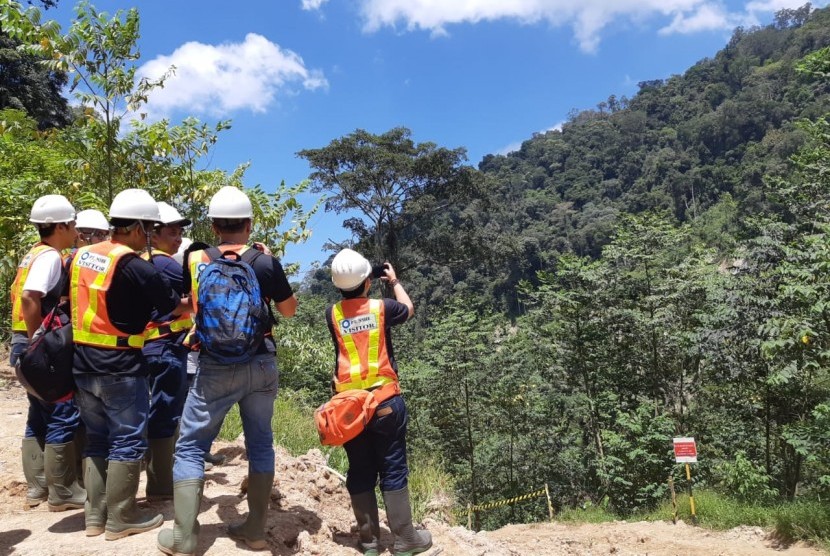REPUBLIKA.CO.ID, MALANG -- As an effort to reduce carbon emissions and realize Indonesia with low emissions, Indonesia presents renewable energy in the form of Batang Toru hydropower plant, which located in South Tapanuli, North Sumatra. Every year, this hydropower plant can reduce carbon dioxide emissions by at least 1.6 million metric tons, equivalent to carbon sequestration from 120 thousand hectares of forest.
The carbon absorption is crucial in terms of prevention of the effects of climate change which every day increasingly threatens the lives of all creatures on Earth. The most obvious impact of climate change is the increase in global temperatures and rising sea levels, so it is threatening coastal areas.
On 2019, Indonesia Green Growth and Indonesian Low Emissions Network (JIRE) talk show, the effort to realize it was discussed. This event was held by Ministry of Environment and Forestry together with Climate Change Control Board, and local government on last June 27 in Malang, East Java. Speakers on the event were member of the National Energy Council Abadi Poernomo, Director of New Energy and Renewable Energy of the Ministry of Energy and Mineral Resources (ESDM) Harris, and Senior Adviser on Environment and Sustainability of Batang Toru hydropower plant Agus Djoko Ismanto.
According to Agus, Batang Toru hydropower plant has clean energy because the source is water. He stressed hydropower plant requires a supportive environment for storing water naturally.
“Batang Toru hydropower plant does not have a reservoir, so the water stock is stored in the forest. Therefore, we will fundamentally maintain and always participate in the regional sustainability program that produces water as the raw material for its operations, "said Agus.
Agus said Batang Toru hydropower plant has gone through in-depth studies according to national and international requirements. Not only complete the enviromental impact analyses (Amdal), but also study of the Environmental and Social Impact Assessment (ESIA) was carried out, which made this hydropower plant as the first in Indonesia to implement the Equatorial Principle.
Meanwhile, Harris from Ministry of Energy and Mineral Resources said Batang Toru hydropower plant will replace role of diesel-fueled power plants during peak loads in North Sumatra. The use of clean and environmentally friendly Renewable Energy such as hydropower will reduce the level of carbon emissions while increasing the quality of environmental sustainability to mitigate the effects of climate change.
“Batang Toru hydropower plant construction is part of a strategic program for the construction of 35 thousand MW (Mega Watt) national power plants. It is capable of producing 510 MW of electricity and can save foreign exchange of 400 million dollars per year, which is obtained from not buying fossil fuels for diesel power," Harris explained.
Moreover, Abadi Poernomo also said Clean Energy is the future of Indonesia. Low emission energy usage can reduce carbon dioxide gas emissions that have been produced by fossil energy. Hydropower plant is present as a clean energy source that is environmentally friendly because in principle, it must maintain the quality of the Water Ecosystem as an energy source.
Furthermore, Agus said Batang Toru hydropower plant is committed to always providing tangible benefits to the environment and the community around the area. Not only revegetation of rare plants that are almost extinct, Batang Toru hydropower plant also builds the economy of the community by providing assistance and development, such as in developing Sipirok coffee plants as specialty coffee, cultivating jurung fish species, processing potential palm sugar, and other small scale businesses. It must be done as a tangible manifestation of mitigating the impact of climate change that focuses on increasing community capacity.


